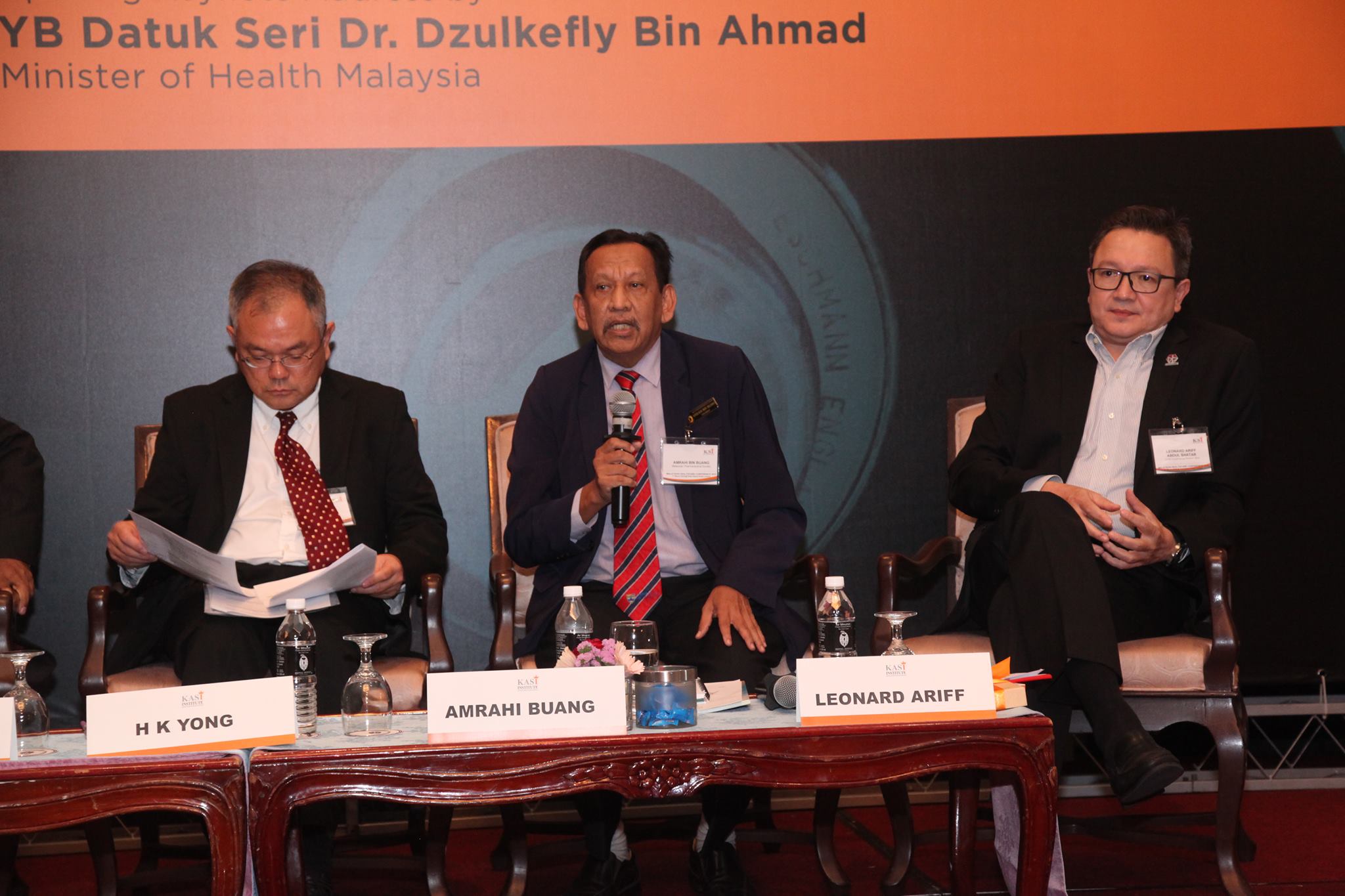KUALA LUMPUR, Sept 25 — A pharmacists’ group called today for dispensing separation, alleging that private health facilities may not be reporting medication errors unlike their government counterparts.
Malaysian Pharmaceutical Society (MPS) president Amrahi Buang said a lack of prescriptions, or pharmacist screenings before dispensing medicines, risked harming patients. Separating the prescribing and dispensing of drugs is not mandated by Malaysian law.
“This was shown in a medication safety report by the Ministry of Health whereby most of the reports came from government facilities, compared to the private sector whom may not be bothered by this,” Amrahi said in a statement on World Pharmacists Day today, without elaborating further.
Amrahi cited last month 2018 statistics by the Medication Error Reporting System under the Health Ministry that found about 72 per cent of medication errors occurred during prescribing, of which about 93 per cent was reported by pharmacists.
He stressed today that medication safety was a huge issue in Malaysia’s health care system.
“While it is heavily emphasised in the government health care facilities, the same could not be said the same in the private sector,” Amrahi said.
“A lack of pharmacists and dispensing separation in private health care illustrates a huge gap in the aspect of medication safety.”
Malaysian Pharmaceutical Society president Amrahi Buang
The theme for World Pharmacists Day this year is “safe and effective medicines for all”.
“The biggest and most significant impact contributed by pharmacists would be to ensure medication compliance in patients,” Amrahi said, noting that non-compliance would lead to further complications in one’s disease and treatment regime.
“Therefore, it can be concluded that pharmacists are medication experts in ensuring safe and effective medicines for patients. Our roles in medication safety is undisputed for the sake of effective treatment for patients.”
Health Minister Dzulkefly Ahmad said last month that mandatory prescriptions upon request was current government policy, while a ministry official said making prescriptions mandatory across the board, whether or not patients request for it, requires an amendment to the Poisons Act 1952.
Medical Practitioners Coalition Association of Malaysia (MPCAM) president Dr Raj Kumar Maharajah previously claimed that medication errors are hardly made in private clinics because they are run by senior general practitioners (GPs) who see primary care cases repeatedly.
He also said GP clinics already maintain prescription books to record all drugs dispensed, but it doesn’t make sense to issue paper prescriptions to patients unless they want to buy medicines outside, since the physician is also the head of the pharmaceutical services in the clinic, according to the Private Healthcare Facilities and Services Act 1998.








